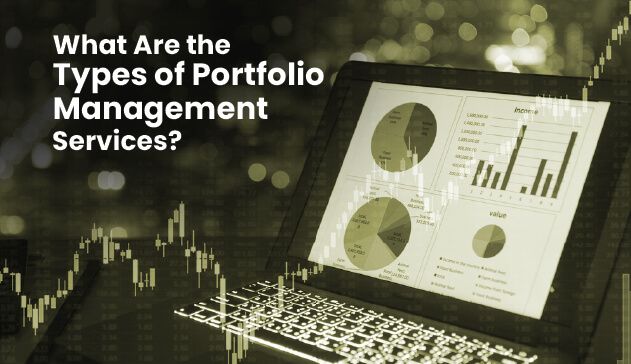
Portfolio management services (or PMS) refer to the investment solutions portfolio managers provide for managing the client's assets. They prepare a strategy aiming to enhance the yield over time. PMS also ensures that the portfolio gets minimal risk exposure while handling the investments.
Usually, PMS fund managers create an investment basket (or portfolio mix) that includes equities, bonds, debt, and other instruments. At the same time, they also create an investment strategy that consists of this mix, which can help achieve the client's financial objectives. Simultaneously, these companies are deemed to follow the SEBI (Securities Exchange Board of India) regulations when distributing these services.
Every PMS provider will try to provide these services to clients. It consists of these key components, namely:
Considering an allocation that includes different asset classes helps balance the risk-return ratio. Here, portfolio managers try to distribute the investments in various segments like equities, debt instruments, commodities, real estate, and more. However, utmost care is taken that there is no single asset allocation. Otherwise, there would be high-risk exposure, further impacting the portfolio's performance.
Diversification and allocation might sound synonymous, but they are distinct. For instance, allocation ensures that the investments do not fall under one asset. However, diversification is a micro-approach to investing across various sectors and securities within each asset class.
Investment in any asset does bring associated risk along. However, a significant impact lies on the portfolio's performance. Hence, PMS managers enable a rebalancing strategy to manage the portfolio during market volatility.
In a broader sense, different types of portfolio management services are available, which include;
In Discretionary management, the portfolio managers take the lead and suggest a suitable strategy based on the client's investment goals, risk appetite, and profile. They also have the authority to buy or sell investments on your (or client's) behalf.
Here, the client's approval is not required to execute the strategy or invest. Also, the manager is solely responsible for the performance and risk management of the portfolio.
Opposite to discretionary, this portfolio management strategy involves the client. It means that the fund manager will consult you before making any decision. They can present you with a plan, but the final decision to invest or reject remains with you.
As the name suggests, the advisory PMS includes mutual involvement of both managers and investors in the final investment decision. Here, the portfolio manager may provide investment recommendations, but the client ultimately decides whether to execute them or not. In advisory PMS, the complete control of the portfolio stays with the client, and is responsible for the final decisions as well.
It involves majorly equity instruments like listed and unlisted shares, with a high-risk profile.
Including fixed-income instruments like corporate bonds, government securities, and debt mutual funds, this category has comparatively lower risk.
It is a hybrid mix of both equity and debt securities for a balanced portfolio.
It goes beyond traditional instruments (like debt and equity), and invests in alternatives like Gold, Real Estate Investment Trusts (REITs), Infrastructure Investment Trusts (InvITs), and similar others.
PMS companies operating in India fall under the framework of SEBI. Thus, these firms are deemed to follow the regulations and criteria laid out by the body. Some of the mandatory rules laid down for PMS providers include;
All PMS companies must register with the SEBI before providing their services to clients.
SEBI requires investors to have a minimum investment of ₹50 lakhs, thus primarily focusing on high-net-worth individuals who can bear such risk.
Each PMS provider must have a compliance officer who ensures proper adherence to SEBI guidelines.
PMS companies must regularly update investors on portfolio performance, fees, reports, and risk disclosures.
As SEBI prescribes, PMS providers must have a separate/independent custodian to handle the assets and avoid client conflicts.
There is not one reason why one should take a portfolio management service. There are several benefits, like;
The selection of the provider, considering the types of portfolio management services provided, depends on evaluating various factors like;
With the rising population of HNIs and UHNIs, the demand for portfolio management services has also increased. Alongside personalized strategies, expert management, and complete transparency, PMS gives a way to protect and grow investments that align with your unique financial journey. Investors can avail of these services and choose a strategy for their portfolio, be it passive, active, discretionary, or non-discretionary.
Here is the following taxation implied on the PMS transactions conducted within the portfolio:
Short-term Capital gains (STCG) : As per the recent Budget 2024 update, any capital gains received from listed equity assets held for less than 12 months will have a tax rate of 20%. Earlier, it was 15%.
Long-term Capital gains (LTCG) : For capital gains received from listed equity assets over a year, the LTCG applicable is 12.5%.